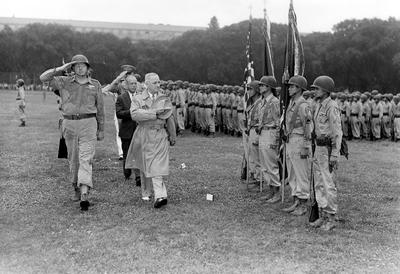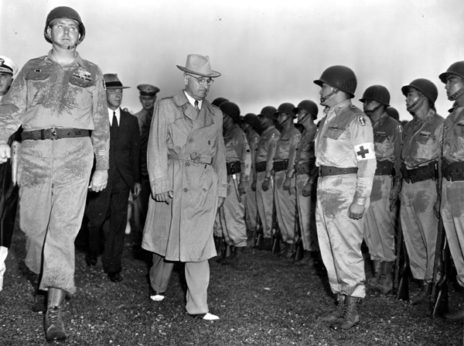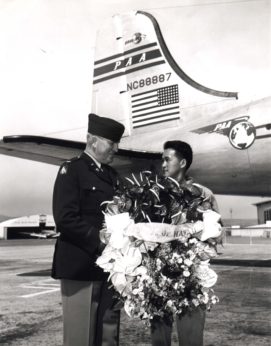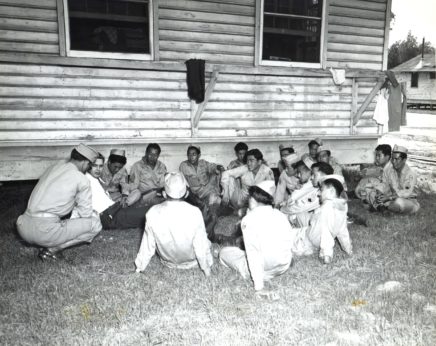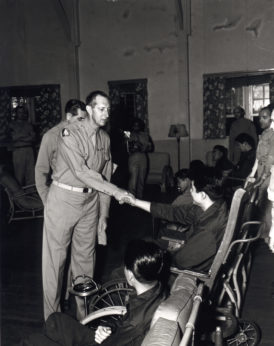The War Years (1941 – 1946): Serving the U.S.
Coming Home
In 1945, residents of the West Coast camps were allowed to return to their homes. The last camp at Tule Lake closed on March 28, 1946.
Although the incarceration of the Japanese Americans was never found unconstitutional, presidents and Congress have subsequently condemned it.
Like the detainees who left the camps, the Nisei soldiers who returned to the West Coast found housing and employment difficult to obtain because of post-war shortages and anti-Japanese American sentiment. With little or no government aid, Japanese Americans began the process of rebuilding their lives.
The Nisei’s heroism on the battlefields in Europe and the Pacific settled the question of loyalty. But it would be decades before the attitudes of many toward Japanese Americans began to turn.
You fought the enemy abroad and prejudice at home and you won.
President Harry Truman on July 15, 1946, speaking of the Nisei’s loyalty to the nation during a review of the 442nd Regimental Combat Team
Time Magazine, July 22, 1946
In the decades following the war, hard-won reforms began to take place:
- Discriminatory state laws – affecting interracial marriage, segregation of military units and the ability of aliens to hold land – were repealed
- The Civil Liberties Act of 1988 passed and provided a national apology for the incarceration and a token payment of $20,000 to survivors of the camps.
- The Civil Liberties Public Education Fund was established to fund research and education programs to help ensure the injustices Japanese Americans endured during WWII would never be tolerated in the United States again.
Today, a Day of Remembrance is recognized annually on February 19 – the anniversary of the signing of Executive Order 9066 – by Japanese Americans and others concerned with civil rights across the nation.
More than sixty-six years after the end of World War II, the 100th Infantry Battalion, the 442nd Regimental Combat Unit and the Nisei of the Military Intelligence Service were finally recognized for their contributions with a Congressional Gold Medal that is touring the nation.
Before World War II, I entertained some doubt as to the loyalty of American citizens of Japanese ancestry in the event of war with Japan. From my observations during World War II, I no longer have that doubt.
Admiral Chester W. Nimitz, Commander of Pacific Fleet during WW II

